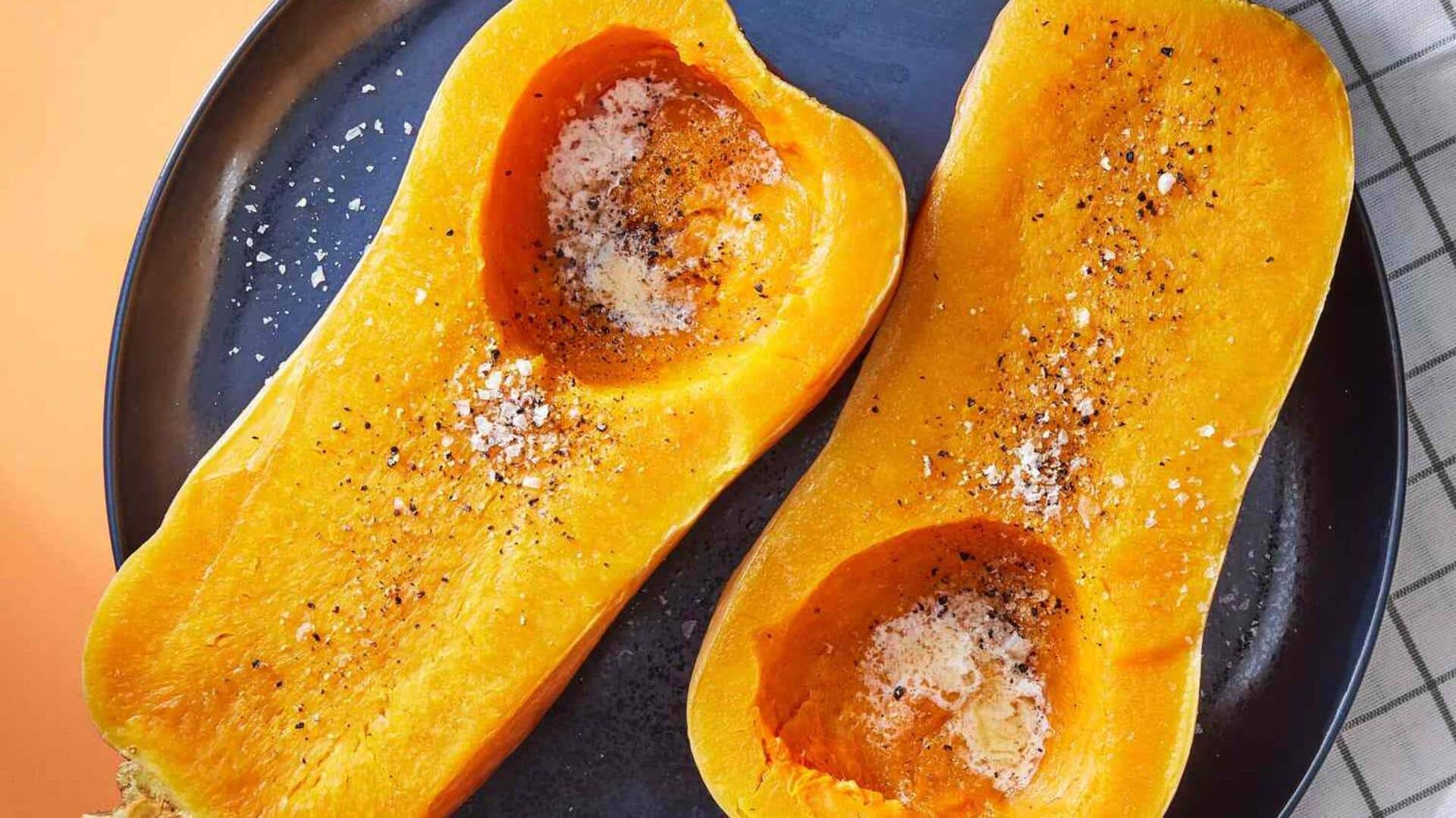
Unique squashes in African vegetarian meals
What's the story
Squashes are the unsung heroes of African vegetarian cuisine, providing a universe of tastes and textures. These power-packed veggies are not just healthy, they're also super versatile! That's why you'll find them starring in all sorts of delicious dishes across the continent. Think beyond basic - from soul-warming soups and stews to sizzling grilled and roasted delights, squashes bring that extra touch of magic to vegetarian meals.
Staple squash
The staple: Butternut squash
Butternut squash is a staple in African cooking, thanks to its sweet, nutty flavor and creamy texture. It shines in soups and stews, adding a velvety richness that eliminates the need for dairy. Roasting butternut squash with warm spices like cumin and coriander creates a deliciously caramelized side dish that's easy to prepare.
Heirloom variety
The heirloom: Gem squash
Gem squash is a smaller variety that's prized for its tender flesh and sweet flavor. In several African nations, it's halved, seeded, and then filled with a hearty mixture of grains such as millet or quinoa, herbs, and occasionally cheese before being baked. This preparation method transforms gem squash into a fantastic main course for vegetarian meals.
Exotic choice
The exotic: Chayote squash
Chayote squash may not be indigenous to Africa, but its mild flavor and crisp texture have made it a welcome addition to many African cuisines. It is frequently used raw in salads or lightly sauteed with other vegetables as a side dish. In East Africa, chayote is especially loved for its ability to balance out the region's spicy flavors with its refreshing crunch.
Pasta alternative
The versatile: Spaghetti squash
Spaghetti squash is a fun and healthy alternative to traditional pasta dishes - and it's gluten-free and low-carb to boot! Once you've cooked it, the inside of the squash comes out in spaghetti-like strands. You can mix it up with some sauce or veggies for a light and tasty meal. In Africa, it is becoming a trendy substitute for those heavy sides of rice or potatoes we're all used to.
Preparation tips
Cooking tips for squashes
When cooking squashes, roasting is a great way to bring out their natural sweetness and develop a deep, caramelized flavor. For butternut squash, there's no need to struggle with peeling before roasting! The skin actually softens up nicely and becomes totally edible. Spices with warm, sweet notes (think cinnamon, nutmeg, or even ginger) work wonders with the natural sweetness of squashes.